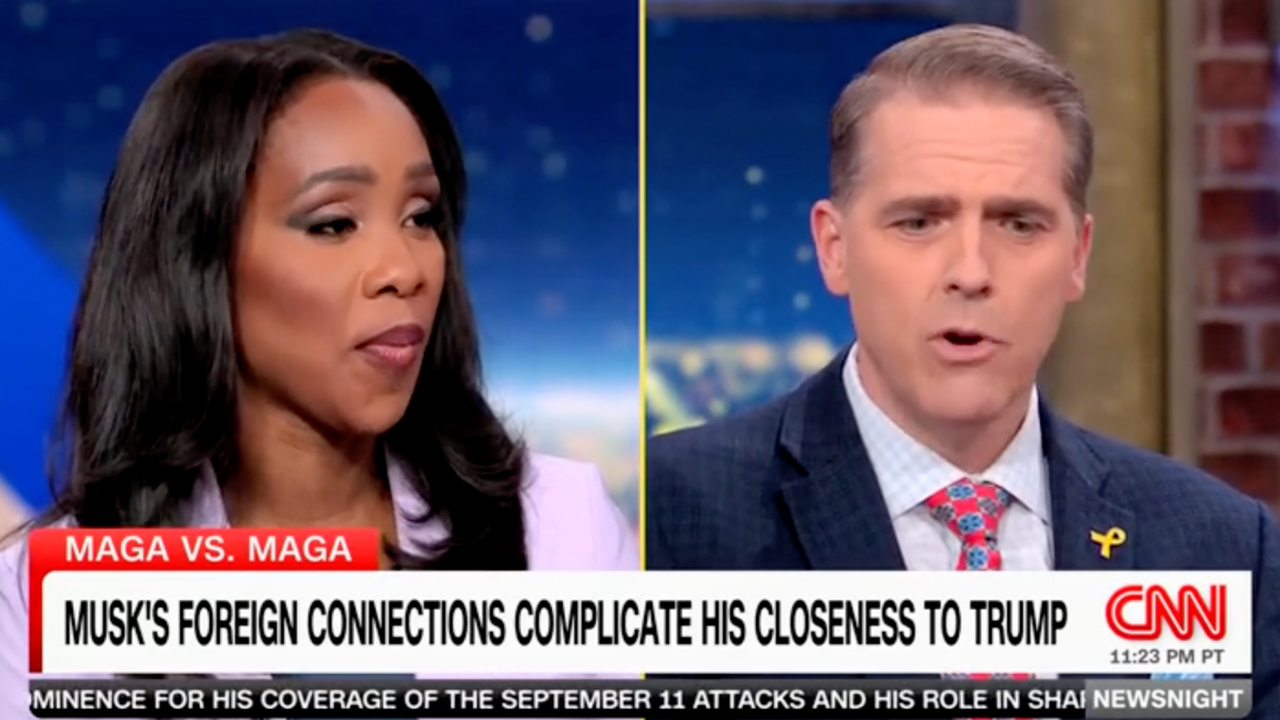A heated exchange erupted on CNN this week between political commentator Scott Jennings and anchor Abby Phillip, after Jennings claimed that Portland, Oregon, was “occupied” by antifa protesters attacking federal agents — a claim Phillip immediately dismissed as “an exaggeration.”
The debate unfolded during a live segment discussing the recent arrest of two protesters outside the U.S. Immigration and Customs Enforcement (ICE) facility in Portland on Friday night. According to KOIN 6 News, the individuals were detained for allegedly blocking traffic during a small demonstration.
Jennings, a conservative analyst and former adviser to President George W. Bush, argued that the protests amounted to far more than isolated civil unrest.
Also Read
Jennings: “Portland Has Been Occupied by Antifa”
“Portland has been occupied by antifa for quite some time,” Jennings began. “You guys keep calling them protests. These aren’t protests — these are violent people. They’re attacking law enforcement, they’re attacking federal facilities. The president of the United States has every obligation to defend federal facilities and personnel there. It’s a disgrace that we have an American city that is essentially being occupied by left-wing radicals and the locals won’t do anything about it.”
Phillip quickly pushed back, labeling Jennings’s description “an exaggeration.”
Phillip Pushes Back: “It’s One City Block”
“It’s not an exaggeration! I’ve seen the video,” Jennings shot back.
Phillip countered by citing local officials who have repeatedly said that violent demonstrations are largely confined to a single city block near the ICE building and are not representative of Portland as a whole.
“The situation, by local officials, has been described as something that’s essentially happening in one city block of Portland,” Phillip said.
Jennings interrupted: “They’re assaulting ICE facilities.”
Phillip pressed on: “Portland is a city. And it’s not a perfect city, but it is a city. And something that’s occurring on one city block doesn’t mean Portland is ‘war-ravaged.’”
The Debate Escalates
Jennings refused to back down, insisting that the federal government was justified in its actions. “Do you dispute that they’ve attacked the ICE facilities?” he asked.
Phillip responded: “I didn’t say anything about that. I said that’s happening in one block of the city. So, does that constitute Portland being a ‘war-ravaged’ city?”
Jennings replied, “I think what happened in Portland is a disgrace. Nobody wants to go there. And, yes, parts of the city are ravaged by the protesters, and federal officials believe their facilities are under attack.”
Phillip countered again, asking, “When violent protests happen, law enforcement has a responsibility to handle it. But would you describe an entire city as ‘war-ravaged’ when there are protests — even if they’re violent — happening outside a single building?”
Jennings held firm: “Yes, I would say if there are violent protests happening against a federal facility, they are being ravaged. I completely agree with that language.”
Trump’s “War-Ravaged” Rhetoric
The exchange mirrored language used by former President Donald Trump, who last week posted on Truth Social describing Portland as a “war-ravaged city.” The post was part of his justification for deploying federal National Guard troops to protect government property, a move that sparked criticism from Oregon officials.
Trump’s remarks reignited debates about the federal government’s role in responding to local protests — a controversy that dates back to his 2020 decision to send federal officers to Portland during nationwide demonstrations over racial justice.
Recent Protests and Arrests
The latest protests near Portland’s ICE facility have been far smaller in scale compared to the 2020 unrest. Police said two people were arrested Friday night after blocking a roadway during a demonstration. On Thursday night, conservative influencer Nick Sortor was detained by Portland police after allegedly attempting to stomp out an American flag that had been set on fire — an incident that triggered outrage among Trump supporters on social media.
Despite these isolated clashes, local authorities maintain that Portland remains calm, with only limited protest activity centered near the ICE building.
Broader Context
The city has long been a focal point in national debates over policing, federal authority, and political extremism. For conservative commentators like Jennings, Portland has become emblematic of what they see as permissive local governance that tolerates disorder. For others, including local officials and journalists, such portrayals distort the city’s reality, inflating isolated confrontations into sweeping claims of chaos.
Jennings’s assertion that Portland is “occupied” by antifa drew strong reactions online, with critics accusing him of echoing Trump’s inflammatory rhetoric. Supporters, meanwhile, argued that his comments highlight ongoing threats to federal agents and property.
A Divided Narrative
The CNN exchange underscored how Portland continues to serve as a symbolic battleground in America’s polarized political landscape — a city where small protests can become national flashpoints and where the language used to describe them often reveals as much about ideology as about fact.
For Phillip, the debate was about accuracy and proportionality: recognizing that conflict exists but rejecting the idea that it defines an entire city. For Jennings, it was about urgency and accountability — portraying Portland as a cautionary tale of unchecked extremism.
As the discussion wrapped, neither side yielded. Phillip called for “measured perspective,” while Jennings maintained, “It’s not an exaggeration. Portland has been occupied.”
The fiery exchange reflected not only the nation’s deep divisions over protest and policing but also the ongoing struggle over how America tells the story of its cities — and who gets to define what “law and order” really looks like.












